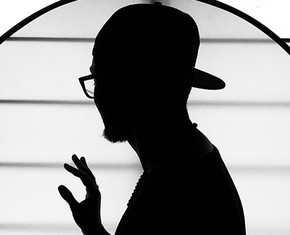The views expressed in our content reflect individual perspectives and do not represent the authoritative views of the Baha'i Faith.
In New York City, where I live — as is the case in many large metropolitan communities — homelessness is a rampant and visible problem.
Despite the reality that almost every New Yorker crosses paths with someone who is homeless at some point in their daily routine, the way people interact with folks clearly navigating the chaos of housing instability has always felt strange to me.
RELATED: The Root Cause of Homelessness
Since I moved into the city, I realized that most people don’t know how to react to this widespread struggle. As the New York City-based Coalition for the Homeless puts it, “our reactions can range from pity, to anger, to choosing not to see the person at all.” But the number of people sleeping in doorways, at bus stops, or in parks is increasing, as is true in many other parts of the United States, both rural and urban.
The Baha’i writings emphasize the importance of doing all we can to avoid ignorance and root ourselves in compassion. Abdu’l-Baha, the son of the prophet and founder of the Baha’i Faith, Baha’u’llah, wrote:
Man must free himself from the weeds of ignorance, thorns of superstitions and thistles of imitations, that he may discover reality in the harvests of true knowledge. Otherwise the discovery of reality is impossible, contention and divergence of religious belief will always remain and mankind, like ferocious wolves will rage and attack each other in hatred and antagonism.
In an effort to share the knowledge that has allowed me to operate from a place less marked by ignorance and more in touch with the holistic reality of the situation, I wanted to share a few responses to some of the attitudes that lead to the othering of people experiencing homelessness.
Fear Towards Folks Struggling With Mental Health and Homelessness
Many of us lack knowledge or experience when it comes to responding comfortably when someone walks through a train during rush hour asking for change or food. While some people will give a dollar or two or offer food, many of us avoid making eye contact or remain focused on whatever task we are engrossed in on our phones.
RELATED: How My Conversation with a Homeless Woman Changed My Life
In my conversations about homelessness, I have heard many friends admit to feeling fear when we think of folks who are homeless and also struggling with mental health issues. I’ve heard people talk about ignoring people or avoiding them for the sake of safety, which I can relate to as a woman who has to pay conscious attention to my surroundings due to the violence and oppression that women face every day. But when it comes down to it, research contradicts this fear in what it tells us about mental illness. Empirical research debunks the myth that people living with serious mental health issues are more likely to be violent towards others.
The United States Department of Health and Human Services explains: “The vast majority of people with mental health problems are no more likely to be violent than anyone else. Most people with mental illness are not violent and only 3%–5% of violent acts can be attributed to individuals living with a serious mental illness. In fact, people with severe mental illnesses are over 10 times more likely to be victims of violent crime than the general population. You probably know someone with a mental health problem and don’t even realize it, because many people with mental health problems are highly active and productive members of our communities.”
Lack of Awareness Towards the Plight of Folks Facing Housing Instability
I have noticed that the “out of sight out of mind” rule applies to many of us when it comes to homelessness. When they think about someone who is homeless, most people imagine a person walking through the train or sitting on the sidewalk with a sign. But researchers have shown that in New York City there is a growing population of single-parent families falling into homelessness due to the rising prices of housing caused by gentrification. Data also indicates that about 25% of folks who are homeless are employed. They’re still unable to secure permanent housing despite having an income.
In short, just because someone isn’t living on the street doesn’t mean that a person is not homeless — one might be living in a car, a motel, or temporary housing of some sort. As housing crises persist and inequality carries on — especially in cities with uniquely difficult circumstances — increasing numbers of people are experiencing homelessness, even when those around them at school or work do not easily recognize them as being homeless. The Baha’i writings say:
Let them at all times concern themselves with doing a kindly thing for one of their fellows, offering to someone love, consideration, thoughtful help. Let them see no one as their enemy, or as wishing them ill, but think of all humankind as their friends; regarding the alien as an intimate, the stranger as a companion, staying free of prejudice, drawing no lines.
Better acquainting ourselves with the nuances of homelessness is a necessary step in addressing how we can each personally help address the problem and contribute to its solutions. Understanding the nuance of the issue is also necessary in thinking about how we need to approach our society’s institutions and hold them accountable for addressing the issue.
RELATED: Is Housing a Human Right?
Racial and Class Bias Towards Less Advantaged People
The general societal attitude toward folks who are not financially, socially, or mentally advantaged or “typical” is often unkind, rooted in racism, and detrimental to solving the problem.
The Baha’i writings encourage us never to isolate or ignore those less fortunate in any way. Baha’u’llah wrote,
If ye meet the abased or the down-trodden, turn not away disdainfully from them, for the King of Glory ever watcheth over them and surroundeth them with such tenderness as none can fathom . . . Flee not from the face of the poor that lieth in the dust, nay rather befriend him and suffer him to recount the tale of the woes with which God’s inscrutable Decree hath caused him to be afflicted . . . Whilst ye consort with him, the Concourse on high will be looking upon you, will be interceding for you, will be extolling your names and glorifying your action.”
As I reflect on this passage, I realize that this does not mean that I should pity those who are struggling. Although someone may be less financially fortunate than I am, they may have knowledge, esteem, or spiritual resources that I lack.
To remain humble and genuine, I remind myself that, in many ways, I am a part of the “abased or the down-trodden.” It helps to delve deeper into the abundant research on this topic, to avoid perpetuating some of the problematic myths that stigmatize folks struggling with homelessness.
With this in mind, I try to interact with people in the same way, no matter their class, their housing status, or the struggles they face at that moment.
















Comments
Sign in or create an account
Continue with Googleor